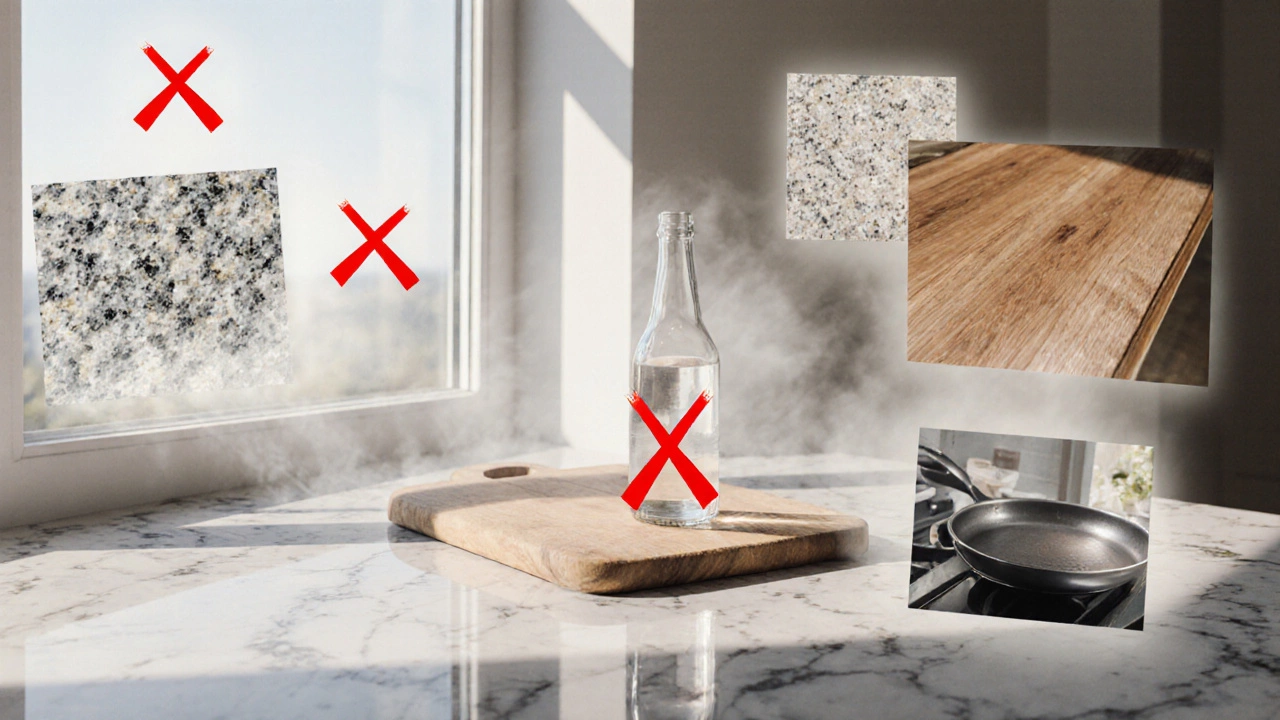Alternatives to Vinegar for Cleaning
When you think about Alternatives to Vinegar, a range of natural or commercial cleaning solutions that can replace vinegar in household chores. Also known as vinegar substitutes, it offers similar acidity or degreasing power without the strong smell. Lemon juice provides citric acid that cuts grease, while Baking soda adds mild abrasion and odor‑neutralising properties. Dawn dish soap brings surfactants that break down oil, and eco‑friendly cleaners package these ingredients in a ready‑to‑use form. Alternatives to vinegar let you keep surfaces sparkling while avoiding the pungent aroma.
One key difference is how each option handles acidity. Alternatives to vinegar encompass natural acids like citric acid from lemon juice, which behaves much like acetic acid but leaves a fresher scent. This means you can safely use it on glass, tile, and stainless steel without the lingering vinegar smell. Another semantic link: cleaning with lemon juice requires the same safety precautions as vinegar—wear gloves and avoid prolonged contact with marble. Meanwhile, baking soda complements acidic cleaners by neutralising excess pH, making it perfect for deodorising carpets or brightening grout.
Why Switch from Vinegar?
People often reach for vinegar because it’s cheap and effective, but it isn’t always the best choice. On stone surfaces like marble or limestone, the acid can etch permanently. Here, a milder alternative such as diluted lemon juice or a non‑acidic commercial eco‑friendly cleaner offers safe cleaning without damage. Dawn dish soap, with its grease‑cutting surfactants, shines on kitchen stovetops where oil builds up faster than vinegar can break it down. And for those who dislike any sour scent, baking soda works as a neutral, fragrance‑free option that still lifts stains and absorbs odors.
Performance-wise, each alternative has its sweet spot. Lemon juice excels at removing hard water spots on glass because citric acid dissolves mineral deposits. Baking soda shines in scrubbing tasks—mix it with water into a paste for stovetop burners or grout lines. Dawn dish soap dilutes well for greasy pans, and many eco‑friendly sprays combine these ingredients for an all‑purpose spray that rivals vinegar’s versatility. Understanding these strengths helps you match the right cleaner to the right job, saving time and avoiding repeat applications.
Cost and availability also matter. Fresh lemons are inexpensive and biodegradable, while a box of baking soda lasts for months. Dawn is a pantry staple already, so you likely have it on hand. Commercial eco‑friendly cleaners may cost a bit more upfront, but they package the right ratios, reducing waste and guesswork. When budgeting, consider the task frequency—daily kitchen wipes might be cheaper with lemon, while occasional deep‑cleaning of carpets benefits from baking soda’s absorbency.
Safety is another practical angle. Vinegar’s strong odor can trigger headaches for some users, especially in poorly ventilated rooms. Lemon juice, while still acidic, releases a pleasant citrus scent that many find uplifting. Baking soda is non‑corrosive, making it safe around pets and children when used as a dry sprinkle. Dawn dish soap should be rinsed thoroughly to avoid residue, but it’s generally gentle on skin when diluted. Eco‑friendly cleaners aim for low‑toxicity formulas, often certified by green standards, which adds an extra layer of confidence for families.
Beyond the basics, you can combine these alternatives for boosted results. A common trick is to spray lemon juice on a surface, then sprinkle a light dusting of baking soda to create a fizzing reaction that lifts grime. For greasy pans, start with Dawn to break down oil, then finish with a rinse of warm water and a dash of lemon to remove any lingering film. These combos let you get the best of both worlds—acidic power and surfactant strength—without reaching for harsh chemicals.
Below you’ll find a curated list of articles that dive deeper into each substitute, show step‑by‑step applications, and compare them side by side. Whether you’re after streak‑free windows, grease‑free ovens, or a fresh scent‑free bathroom, the posts give you actionable tips, safety advice, and product recommendations to make the switch from vinegar smooth and effective.

Surfaces You Should Never Clean With Vinegar - Risks & Safe Alternatives
Learn which surfaces can be damaged by vinegar, why the acid reacts, and safe alternatives for stone, wood, metal, painted walls, screens and more.
Read More